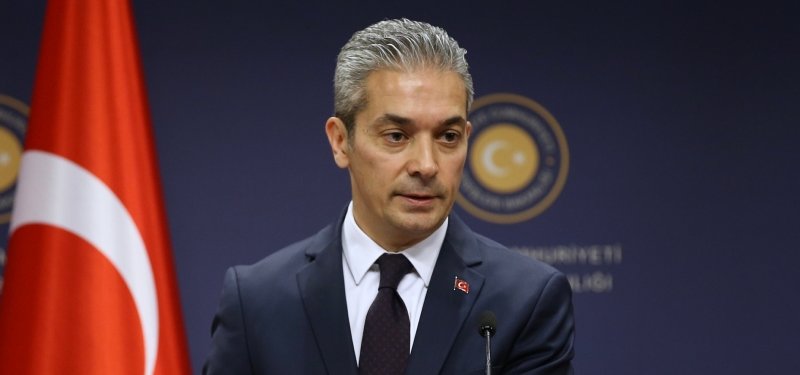
Turkey accuses European Union of rewarding aggressor in Libya
“With this attitude, the EU insists on maintaining a double-standard attitude ... which rewards the aggressor, instead of taking an attitude in favor of international legitimacy,” the Turkish Foreign Ministry said in a statement as accusing the EU of ignoring countries and companies sending arms to the Haftar militias in Libya.
- World
- AP
- Published Date: 11:11 | 22 September 2020
- Modified Date: 11:14 | 22 September 2020
Turkey on Tuesday accused the European Union of "rewarding the aggressor" after the 27-nation bloc slapped sanctions on three transport companies for violating the U.N. arms embargo on Libya, including the Turkish shipping firm which operates a vessel that was at the center of a naval standoff in the Mediterranean Sea between Turkey and France.
A Turkish Foreign Ministry statement dismissed the decision as "of no value." It insisted the ship was providing aid to Libya's U.N.-recognized government based in the capital, Tripoli, and accused the EU of ignoring countries and companies sending arms to the rival Libyan National Army, led by Gen. Khalifa Haftar, which controls the east.
"With this attitude, the EU insists on maintaining a double-standard attitude ... which rewards the aggressor, instead of taking an attitude in favor of international legitimacy," the ministry said.
The statement also said it is "extremely unfortunate" that the decision came as efforts are underway to reduce tensions between Greece and Turkey over energy exploration rights in the eastern Mediterranean.
At talks in Brussels on Monday, EU foreign ministers imposed sanctions on the Avrasya Shipping company, which is headquartered in Turkey, saying it was "found to have violated the arms embargo in Libya." The EU noted that the company operates a cargo ship called Çirkin, which "has been linked to transports of military material to Libya in May and June 2020."
On June 10, a French frigate acting on NATO intelligence tried to inspect the Çirkin off the coast of Libya to check whether it was smuggling weapons in. But France says that Turkish naval vessels escorting the Çirkin locked onto the frigate with targeting radar. The frigate withdrew to avoid a conflict.
Ankara has denied that any action by the Turkish warships was hostile. A NATO probe into the incident was "inconclusive," according to Turkish officials, and its findings were never made public.
France, which was working with NATO's Operation Sea Guardian at the time and is an ally in the military organization along with Turkey, pulled the frigate out of the fleet and is now working with the EU operation policing the arms embargo on behalf of the United Nations.

